A Gorgeous Piece with Lots of Storage!
This table is beautiful and would be a great solution to a storage issue in any room! With two shelves, four drawers, and a large cubby space in the middle, the DIY plans to build a Brandy console table are super easy to construct. The table can be painted, stained, distressed, or finished in any way you choose!
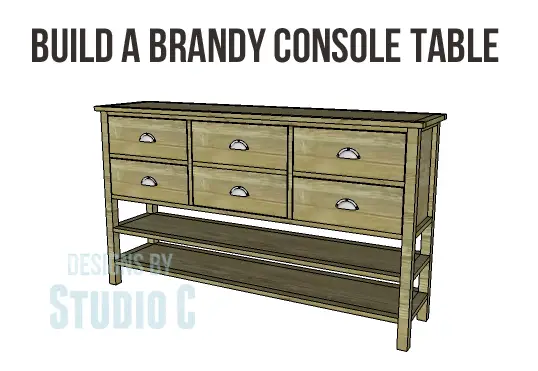
Materials:
- 1-1/4″ pocket hole screws (<– affiliate link!)
- 1-1/4″ brad nails
- Edge banding, optional (<– affiliate link!)
- 6 – cabinet pulls
- 1 set of hinges
- Wood glue
- Sandpaper (100, 150, 220 grits)
- Finishing supplies (primer & paint, or stain, sealer)
Lumber:
- 8 – 1×2 at 8′
- 3 – 1×6 at 8′
- 2 – 2×2 at 6′
- 2 sheets of 3/4″ plywood
Cut List:
- 4 – 2×2 at 32-1/4″ – Legs
- 8 – 1×2 at 10″ – Side Framing Stretchers
- 2 – 3/4″ plywood at 10″ x 14-1/4″ – Side Panels
- 8 – 1×2 at 53″ – Stretchers
- 3 – 3/4″ plywood at 10″ x 53″ – Shelves
- 2 – 1×2 at 53″ – Upper Stretchers
- 1 – 3/4″ plywood at 14-1/4″ x 53″ – Back
- 2 – 3/4″ plywood at 11-1/2″ x 15″ – Dividers
- 2 – 3/4″ plywood at 11-1/2″ x 17″ – Drawer Shelves
- 1 – 3/4″ plywood at 11-1/2″ x 54-1/2″ – Top Panel
- 2 – 1×2 at 11-1/2″ – Top Side Trim
- 2 – 1×2 at 57-1/2″ – Top Trim
- 2 – 3/4″ plywood at 6-5/8″ x 17-1/4″ – False Drawer Fronts (Door)
- 1 – 3/4″ square dowel at 17-1/4″ – False Drawer Front Divider (Door)
- 4 – 3/4″ plywood at 9-1/4″ x 15-1/4″ – Drawer Bottoms
- 8 – 1×6 at 9-1/4″ – Drawer Box Sides
- 8 – 1×6 at 16-3/4″ – Drawer Box Front & Back
- 4 – 3/4″ plywood at 6-5/8″ x 16-3/4″ – Drawer Fronts
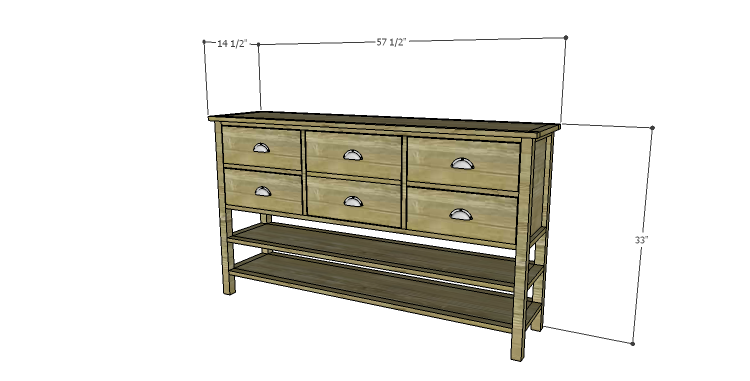
Click on the drawings for a larger view!
Step One
Edge banding will be applied to the exposed edges of the plywood prior to assembly!
Cut the pieces for the legs, side framing stretchers, and side panels. With the pocket hole jig set for 3/4″ material, drill pocket holes in each end of the stretchers as well as all four edges of the panels. Secure the stretchers to the legs using glue and 1-1/4″ pocket hole screws. A close-quarter drill or right angle drill attachment may be necessary if the space is tight.
Secure the panels to the legs and stretchers using glue and 1-1/4″ pocket hole screws. The back face of the panels will be flush with the inside faces of the legs and stretchers.
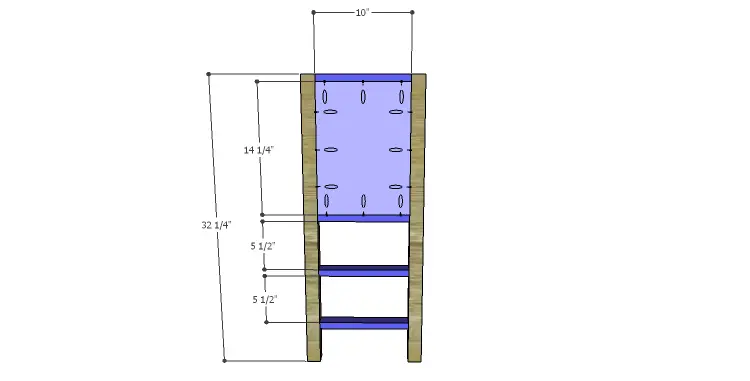
Step Two
Cut the pieces for the lower stretchers and drill pocket holes in each end. Secure to the legs as shown using glue and 1-1/4″ pocket hole screws.
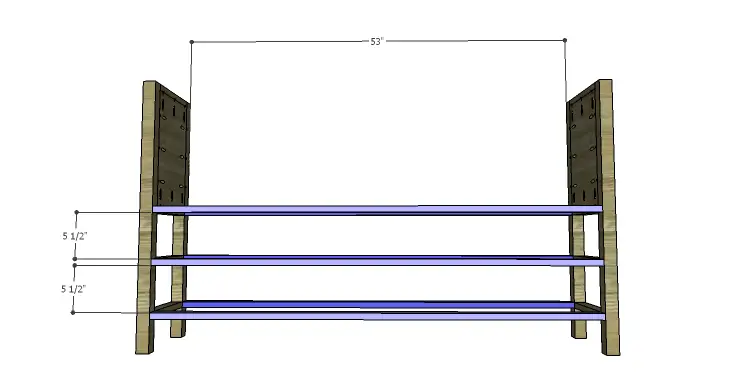
Step Three
Cut the pieces for the shelves and drill pocket holes in all four edges. Secure to the stretchers using glue and 1-1/4″ pocket hole screws.
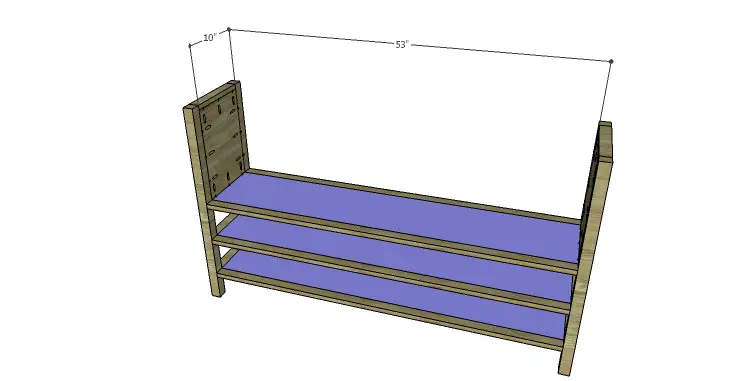
Step Four
Cut the pieces for the upper stretchers drill pocket holes in each end. Secure to the legs as shown using glue and 1-1/4″ pocket hole screws.
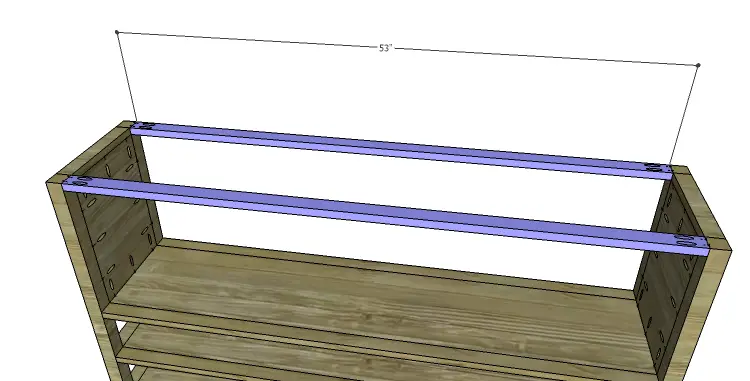
Step Five
Cut the piece for the back and drill pocket holes in all four edges. Secure to the legs and stretchers using glue and 1-1/4″ pocket hole screws.
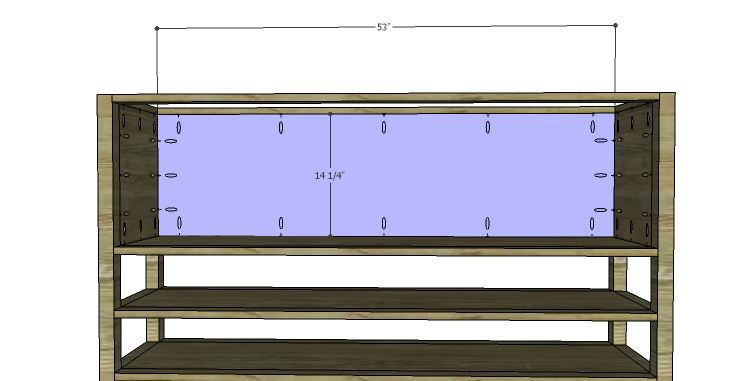
Step Six
Cut the pieces for the dividers and cut the notches using a jigsaw. Drill pocket holes in the back and bottom edges, treating each piece as if it were a left and a right. This way, the pocket holes will be hidden in the drawer areas and will not be visible. Secure the dividers to the back and bottom using glue and 1-1/4″ pocket hole screws. Secure the upper front stretcher to the notch in the dividers using 1-1/4″ brad nails.
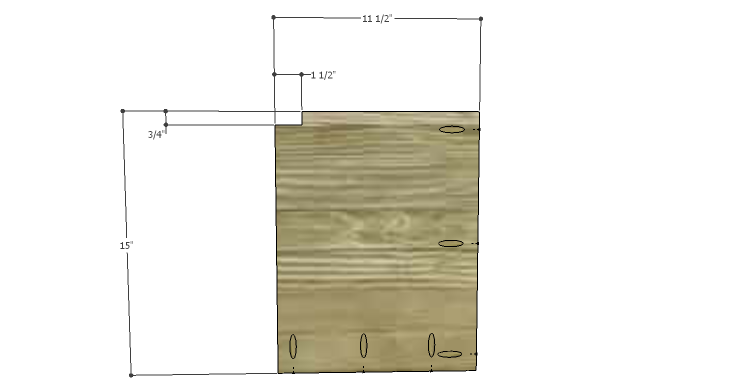
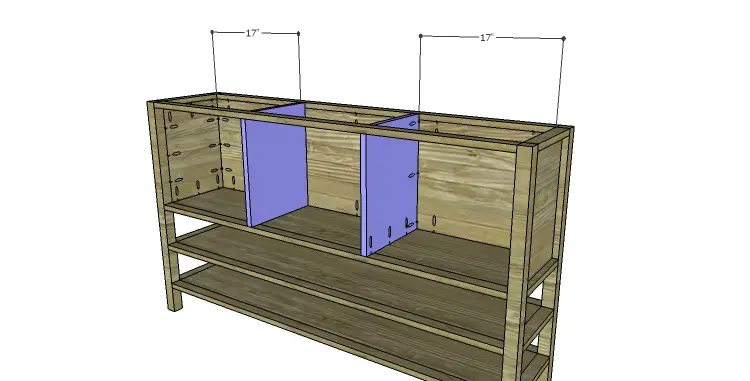
Step Seven
Cut the pieces for the drawer shelves. Position as shown, then secure in place using glue and 1-1/4″ brad nails through the side panels, dividers, and back.
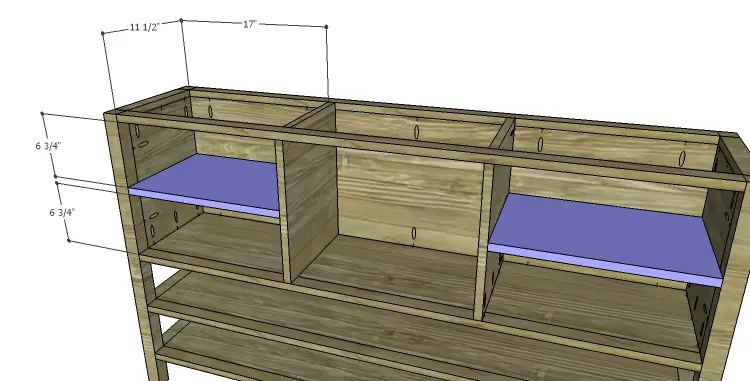
Step Eight
Cut the pieces for the top panel and the top trim. Drill pocket holes in each end of the shorter trim pieces as well as all four edges of the panel. Assemble the top as shown.
The top will overhang by 3/4″ on all sides. Secure in place using glue and 1-1/4″ brad nails through the top into the side stretchers, stretchers, and dividers.
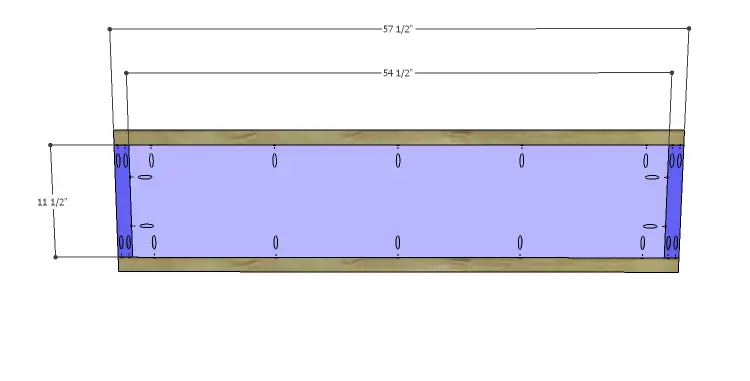
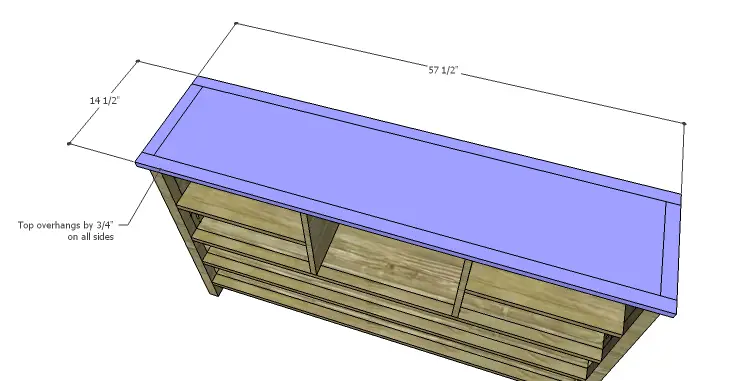
Step Nine
Cut the false drawer front pieces and dowel piece for the door. Drill pocket holes in one long edge of one of the false drawer front pieces. Secure the dowel to one long edge of the other false drawer front piece (the one without pocket holes) using glue and 1-1/4″ brad nails. Secure the other false drawer front piece to the opposite side of the dowel using glue and 1-1/4″ pocket hole screws. There will be a 1/8″ gap around all sides of the door in the opening.
Install the hinges on the door, then install the door in the cabinet.
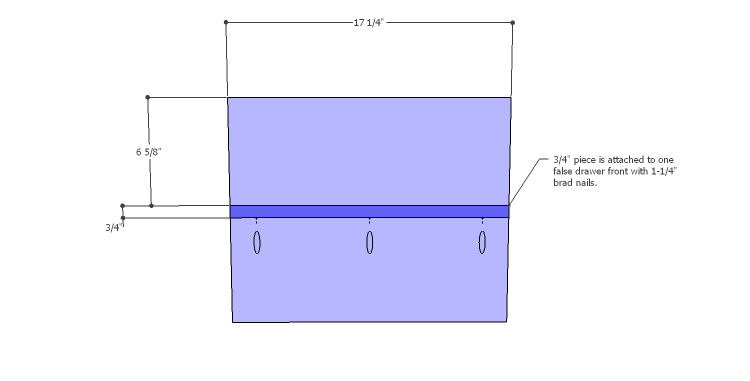
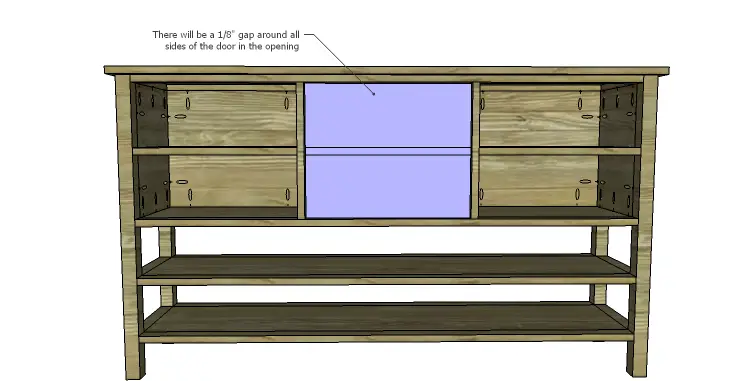
Step Ten
Cut the pieces for the drawer boxes. Drill pocket holes in all four edges of the bottom as well as each end of the sides. Assemble the drawer boxes as shown using glue and 1-1/4” pocket hole screws. There will be a 1/8″ gap at the sides and top of the drawer boxes in the openings.
Cut the pieces for the drawer fronts. Mark the position for the drawer pulls and drill the holes. Shim the drawer front in the opening – there will be a 1/8” gap around all sides – then drive screws through the holes for the drawer pulls into the drawer box. Open the drawer, and secure the drawer front using countersunk 1-1/4” screws from the inside. Remove the screws from the holes for the drawer pull then finish drilling the holes. Install the drawer pull. I have a great tutorial on installing drawer fronts.
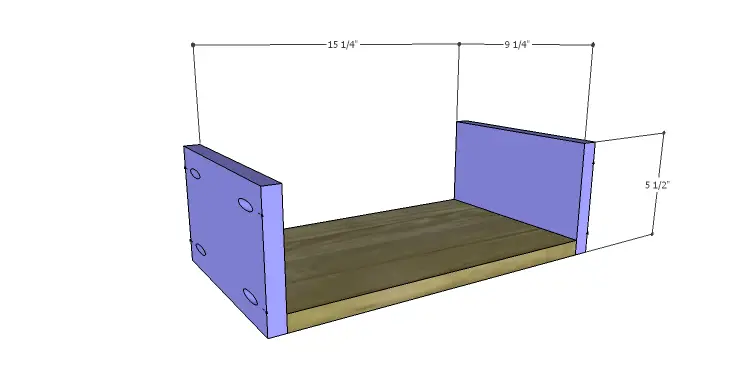
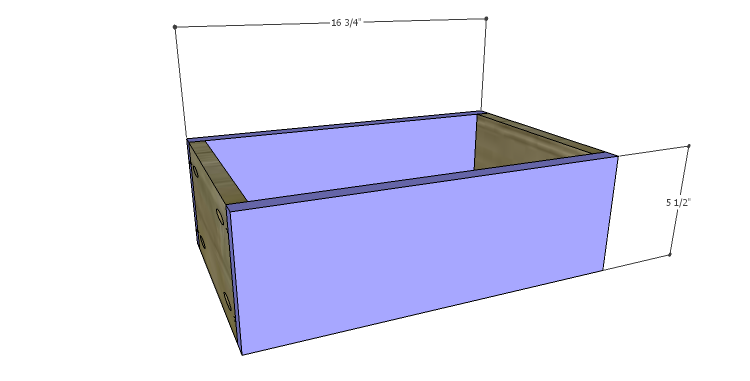
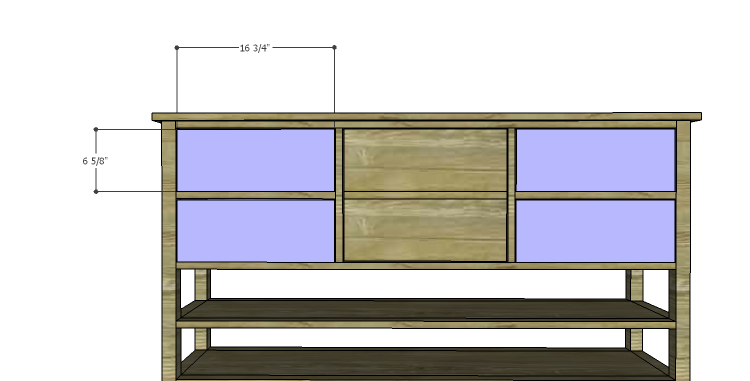
Finish as desired. Apply a coat of paste wax to the bottom of each drawer so they slide smoothly in the openings and install the cabinet pulls!
The DIY plans to build a Brandy console table are easy to construct and will create a fabulous piece of furniture suitable for storing linens in the dining room or for corralling “stuff” in the entryway. Here are a few other options similar to the DIY plans to build a Brandy console table:
Have any questions about the plans? Leave a comment below or contact me at cher {at} designsbystudioc {dot} com!
Originally posted 2014-08-05 08:00:36.

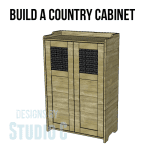

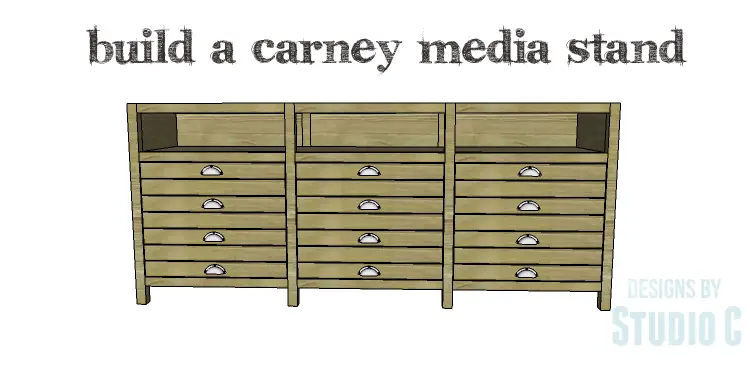
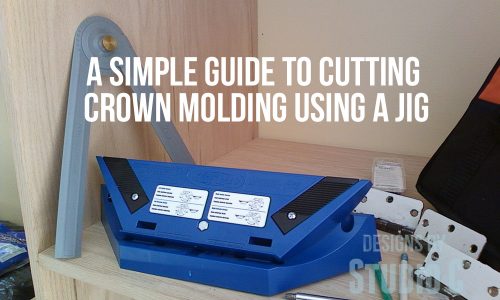

Comments are closed.